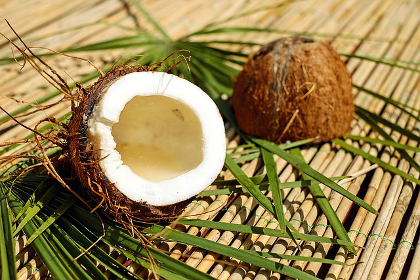
The Many Health Benefits of MCT Oil
Medium-chain triglycerides (MCTs) have become increasingly popular as people are learning more about the health benefits of nutritional ketosis, which is achieved by replacing net carbohydrates (total carbs minus fiber) with high amounts of healthy fats and moderate amounts of high quality protein.
August 22, 2016 | Source: Mercola.com | by Dr. Joseph Mercola
Medium-chain triglycerides (MCTs) have become increasingly popular as people are learning more about the health benefits of nutritional ketosis, which is achieved by replacing net carbohydrates (total carbs minus fiber) with high amounts of healthy fats and moderate amounts of high quality protein.
Some of the health benefits of coconut oil relate to the MCTs in the oil. But MCT oil is a more concentrated source, so it tends to be more appropriate for clinical uses, which include:1
• Appetite reduction and weight loss2,3
• Improved cognitive and neurological function with possible implications in neurodegerative diseases
• Increased energy levels and improved athletic performance
• Improved mitochondrial function and subsequent reduced risk for diseases such as atherosclerosis, diabetes, cancer, cardiovascular disease, autoimmune diseases and epilepsy4
• As part of a specialized dietary therapy for the treatment of epilepsy
• Prevention of non-alcoholic fatty liver disease (NAFLD)5
Short-, Medium- and Long-Chain Triglycerides
The disastrous "low-fat diet" dogma of the last half century has led to a devastating drop in most people's intake of healthy saturated fats, including MCTs, as most people have bought into the erroneous assumption that saturated fats are unhealthy and will raise their risk of heart disease.
Besides coconuts, coconut oil and palm kernel oil, small amounts of MCT can be found in butter and other high-fat dairy products from grass-fed cows and goats.
Be sure not to confuse the extremely unhealthy industrial versions of coconut and palm oils (which are historically used as hydrogenated oils in industrial baked goods) with organic, virgin and unrefined oils available as "health foods."
MCTs get their name from their chemical structure. Fats consist of chains of carbon molecules connected to hydrogen atoms. Short-chain fats have six carbons or less.
Medium-chain fats contain between six and 12 carbons, while long-chained fats, such as the omega-3 fats docosahexaenoic acid (DHA) and eicosapentaenoic acid (EPA), have 13 to 21 carbons.
Four Types of MCTs
MCTs can be divided into four groups based on their carbon length:6
• 6 carbons (C6), caproic acid
• 8 carbons (C8), caprylic acid
• 10 carbons (C10), capric acid
• 12 carbons (C12), lauric acid
As a general rule, the shorter the carbon chain, the more efficiently the MCT will be turned into ketones, which are an excellent source of energy for your body — far preferable to glucose, as ketones produce far less reactive oxygen species (ROS) when they are metabolized to produce ATP.
I recently wrote about how a novel ketone ester drink may help boost performance in professional athletes, but while ketone supplements are still in development, your best bet at the moment is to use MCTs found in foods and supplements, which your body will then convert to ketones.
Most commercial brands of MCT oil contain close to a 50/50 combination of C8 and C10 fats. My personal preference, even though it is more expensive, is straight C8 (caprylic acid), as it converts to ketones far more rapidly than do C10 fats, and may be easier on your digestion.
Coconut oil provides a mix of all the medium-chain fats, including C6, C8, C10 and C12 fats, the latter of which (lauric acid) makes up over 40 percent of the fat in coconut oil. (The exception is FRACTIONATED coconut oil, which contains primarily C8 and C10.7)
There are benefits to all of these fatty acids. However, caprylic and capric fatty acids increase ketone levels far more efficiently.
Also, while lauric acid is technically an MCT, its longer carbon chain means it does not always have the same biological activity as the shorter chained ones. In fact, C12 can behave more like long-chain fatty acids (LCTs), which are less efficiently broken down into ketones.
As a result, C12 is less potent when it comes to curbing hunger and promoting brain health. For these benefits, you want C8 and C10. Lauric acid is most well-known for its antibacterial, antimicrobial and antiviral properties.
The shorter-chained MCTs, on the other hand, are more readily converted into ketones, which are an excellent mitochondrial fuel. Ketones also help suppress ghrelin (a.k.a. the hunger hormone) and enhance another hormone that signals your brain when you're full.
